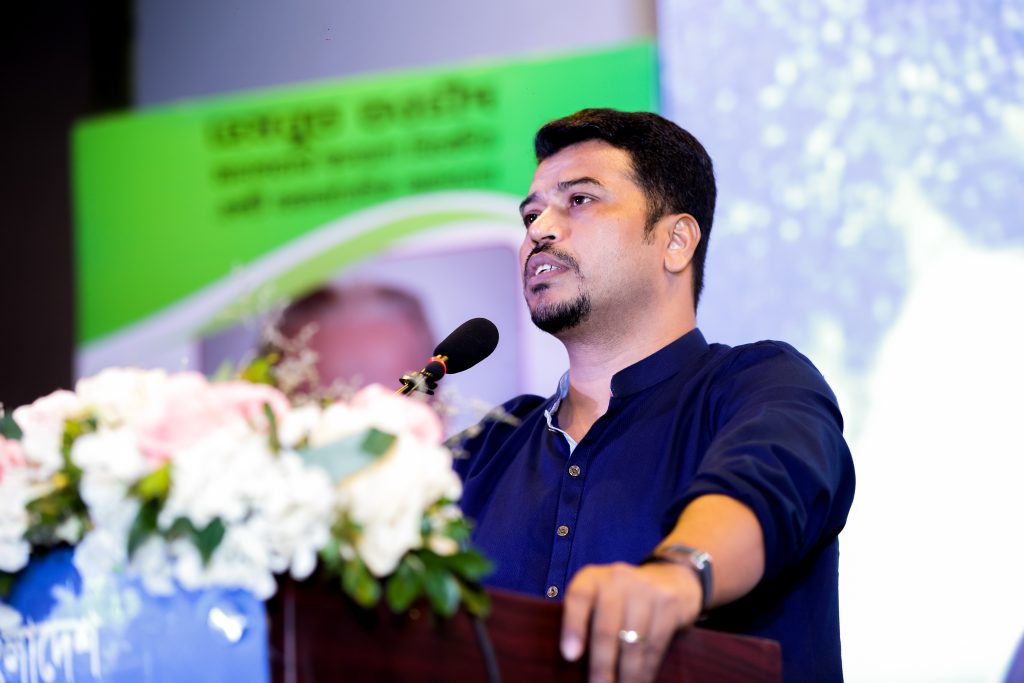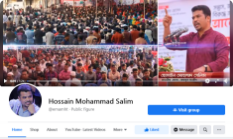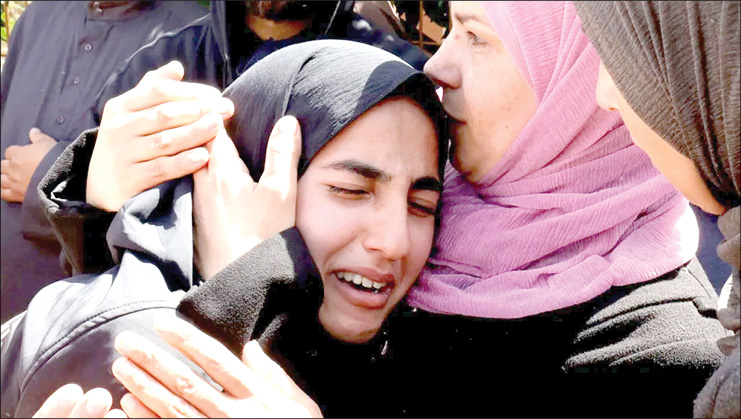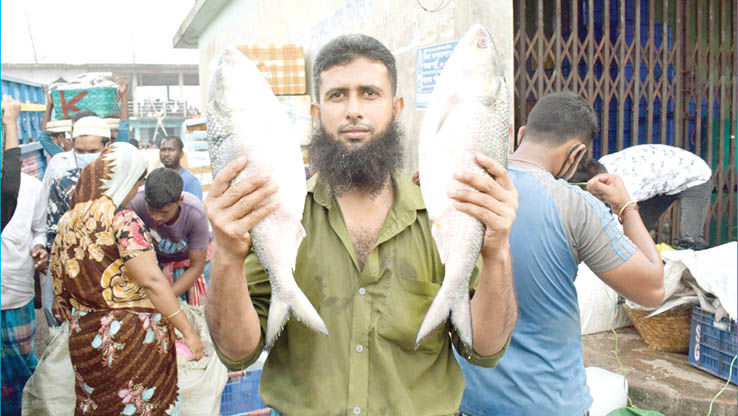The first incident occurred in Savar, Dhaka. In the description of the incident, in the Jhauchar area of Savar, a person named Anwar recently joined a non-political movement called Hezbut Tawheed. Locals affiliated with madrasa backgrounds had been spreading various false and defamatory information about him for some days, causing harassment both psychologically and through family pressure.
On the night of April 24, around 8 PM, while returning home, some people blocked his way in front of a local shop and started assaulting him. They took away his used mobile phone and forcibly detained him, compelling him to call the local responsible members of the organization to come to the scene. A nearby village surveillance representative received the call and quickly arrived at the scene to investigate the matter. Three to four local workers were also with him. However, as soon as they reached there, more than a hundred people attacked them one after another with premeditated intentions.
They attacked Hezbut Tawheed members with sticks and locally-made weapons, initiating violence.
Several individuals were seriously injured, and among them, Shahin Ahmed was in critical condition. Witnessing the escalating situation, some locals who were acquainted with the circumstances rushed forward to rescue the leaders and activists of Hezbut Tawheed. They intervened, preventing the situation from deteriorating further. If they hadn’t intervened, several people could have lost their lives that day.
In this incident, when a written complaint was filed at Sabhar Model Police Station, the police immediately arrested a person named Abul Kalam. However, later on, the matter was satirically interpreted. The brother of one of the members of Hezbut Tawheed, who was killed, is the local UP Chairman. Through his intervention, the matter was satirically discussed in a local reconciliation meeting. The compensations were given to the affected families through minimal financial penalties and written apologies. The complaint, arrest, reconciliation meeting, penalties, apologies—all of these have happened. But if we look at the attack carried out with sticks and locally-made weapons, it could have resulted in the killing of four to five innocent people! Looking at the pictures, it becomes clear that the entire incident has been manipulated, and a local extremist group with a business interest has orchestrated the entire episode with leadership.
The second incident takes place in Uchakhila Union of Ishwarganj Upazila in Mymensingh. Although the incident occurred last Wednesday, its propaganda has been ongoing for quite some time.
An extremist group is spreading false and provocative propaganda about Hezbut Tawheed, creating confusion among the local people. They convey that Hezbut Tawheed activists will not be allowed to stay in the area; if they do, the faith of the local people will be compromised, everyone will become apostates, they need to be eradicated, and their homes should be destroyed, etc. Subsequently, last Wednesday, they called for a gathering in the local market under the banner of the organization called “Ittefaqul Ulama Parishad.” In the gathering, hundreds of people gathered, and at the end of the provocative speeches, they attacked the residence of the Chairman of Ishwarganj Thana. Due to prior caution, Hezbut Tawheed members attempted to resist the attack, and as a result, several members from both sides were injured. Social media posts, pictures, and videos show that the attackers were armed with sticks, machetes, iron rods, and other local weapons. The orchestrated attack led to the looting and destruction of at least four houses belonging to Hezbut Tawheed members.
However, eventually, the local police administration becomes proactive, and with the additional deployment of police reinforcements, they manage to bring the situation under control.
The attacks are being carried out by a radical extremist group with a militant ideology. This group plays on people’s religious beliefs to manipulate them and create unrest. They target individuals who may have different religious beliefs or engage in activities that are perceived as contrary to their own interpretations of faith. The group aims to spread fear, undermine people’s faith, and create division in society. Unfortunately, many people lack religious knowledge, making them susceptible to the propaganda and actions of this extremist group. The incidents are also exploited by local politicians involved in union council politics and national politics, who use the situation to further their own interests. Those who try to verify the truth behind the incidents face resistance from the blinded followers of the extremist group. Overall, the situation reflects the exploitation of religious sentiments by a particular class for their own benefit, while the general public is often caught in the crossfire without fully understanding the reality behind these incidents.
In the recent incidents in Savar, Dhaka, and Ishwari, Mymensingh, we observed that the attackers were armed with various weapons. Upon closer examination, it becomes apparent that within Bangladesh, there is an extreme radical group with a militant ideology that is fostering a severe environment of extremism and communal tension. This group possesses a continuous stockpile of local weapons, and they are quick to deploy them at the slightest sign of trouble. Whenever there is an issue, they arm themselves immediately and emerge within minutes. Due to the secretive nature of their operations, the law enforcement agencies often struggle to seize these weapons or bring those carrying them under legal scrutiny. Despite the ongoing efforts by the security forces, this radical group continues to maintain a constant presence of locally-made weapons. In case of any problem, they swiftly respond by taking up arms, posing a significant challenge for the law enforcement agencies. The situation is further complicated by the fact that after such attacks, the government often exploits the opportunity to target and discredit political opposition parties, rather than addressing the actual criminals. Instead of focusing on genuine criminals, the opposition leaders and activists are often implicated, providing the ruling party with a political advantage. This pattern raises questions about the sincerity of the government and the administration in dealing with these incidents. Ultimately, the incidents are not solely perpetrated by real criminals; they often serve as an opportunity for political gains by the opposing political leaders and the administration.
This matter is only escalating, and the long-term consequences of this could be severe. If one attacks those with different opinions, resorts to violence, uses sticks, rods, or intimidates with weapons, the aftermath could lead to a worsening situation. If there is no reconciliation of differing opinions and increased intolerance, violent confrontations may result, causing further societal polarization. In this scenario, the nation could be heading towards a perilous situation from which recovery may be challenging.
Bangladesh has upheld for 52 years. The government’s laxity and reluctance to address the activities of such groups may jeopardize the hard-earned independence of the country.
This group rejects the true teachings of Islam and instead propagates barbarism, fanaticism, and cruelty. Their actions pose a threat not only to the general public but also undermine the principles of a democratic and inclusive society. If the government fails to address and curb the influence of such extremist groups, Bangladesh may find itself in a situation comparable to the challenges faced by Afghanistan, Iraq, and Syria.
The extremist group’s disregard for democratic values, promotion of violence, and pursuit of selfish interests present a clear danger to the nation’s stability. If the government does not take strong and decisive measures to counteract their influence, the impact of this group’s ideology may lead to adverse consequences over time. It is crucial for the government and administration to actively address and mitigate the growing threat posed by such extremist elements to safeguard the nation’s future.





